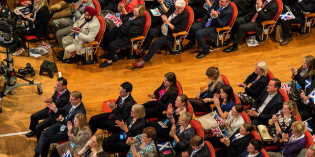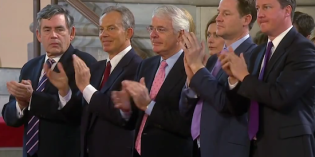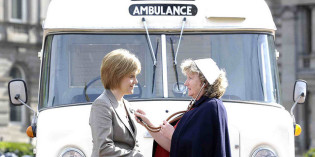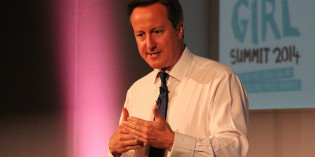Uncategorized

Despite their manifest flaws, political parties improve democracy and it is implausible that it could be successful without them
Political parties are the gatekeeper to almost all democratic policies and offices. But they are often dismissed for only being interested in votes and not voters’ actual opinions. Citizens have become less partisan in the last decades. Perhaps it is time to get rid of them. Would we be better off without them? Not according […]

Lessons from Quebec on avoiding another Scottish referendum
Parallels have been drawn between the independence movements of Quebec and Scotland, with the former twice rejecting the option to become an independent state in referendums on the issue. Scotland did likewise this year, opting to remain a part of the UK. Frédéric Bastien that Quebec has lessons to teach the UK on avoiding a “neverendum” on […]

Politicians who do not appear confident as political ‘performers’ are viewed less favourably by voters
Politicians are expected to be confident, articulate, and telegenic. But does their demenour actually affect the way that they are viewed by voters? According to research carried out by Delia Dumitrescu and her colleagues, it does, with even voters who agree with what is being said reacting negatively to un-confident and less-polished politicians. Similar Posts

A constitutional convention conundrum: Lords reform and a senate of the regions
Donal Coffee and James Hand discuss the prospect of a constitutional convention and the question of Lords reform in light of Ed Milliband’s statements on a senate of the regions. They argue that Ed Miliband should proceed with care when it comes to Lords reform. There has, of late, been increased talk of a constitutional […]

Negative partisanship is real, measurable, and affects political behaviour
Many people explain their political involvement with reference to the kinds of outcomes they’d like to avoid, with mainstream parties in the UK often framing their campaigns around ‘keeping out’ the opposite side. But what do we actually know about what Nicholas J. Caruana calls ‘negative partisanship’? He presents evidence from Canada that shows it explains […]

European Parliament staff: who are they and do their backgrounds influence decision-making?
The European Parliament and the political groups within it employ a number of staff members to help co-ordinate various aspects of the Parliament’s legislative work. But who are these staff members and do their individual backgrounds influence their decisions? Morten Egeberg, Åse Gornitzka and Jarle Trondal present the results of a survey of European Parliament officials. […]

The possibility of the SNP joining a Westminster coalition offers several intriguing possibilities
Following the last General Election, Labour were encouraged to pursue a ‘Rainbow Coalition’ of different nominally progressive parties, including the Scottish National Party. With the next election far from certain in terms of outcome, it is possible that such a scenario could present itself again. Here, Murray Leith assesses what would happen were such an event […]

The use of voter recall in election studies is unreliable, but shouldn’t be abandoned altogether
Pollsters and election researchers routinely make use of voters ‘recall’ of past voting habits, with it often used as a key determinant of how they will vote at subsequent elections. However research shows that voters are often unreliable in accurately recalling how they used their vote. In observing a recent panel study, Ruth Dassonneville and Marc Hooghe argue […]

The Conservatives’ failure to prioritise gender equality could cost them dear at the General Election
One of the features of British politics since the last General Election has been the widening of the gender gap in terms of voting intentions, with women more likely to back Labour. Here, the Conservatives have a blind spot, according to Claire Annesley and Francesca Gains, with their failure to support gender equality in a […]

It is political inequality that represents British democracy’s real crisis
People in Britain today feel both powerless and isolated when it comes to political decision making in Westminster – none more so that Britain’s white working class population who feel less confident in their ability to influence the political process than others. But these are concerns shared by a broad cross-section of society. Low levels […]


 Democratic Audit's core funding is provided by the Joseph Rowntree Charitable Trust. Additional funding is provided by the London School of Economics.
Democratic Audit's core funding is provided by the Joseph Rowntree Charitable Trust. Additional funding is provided by the London School of Economics.